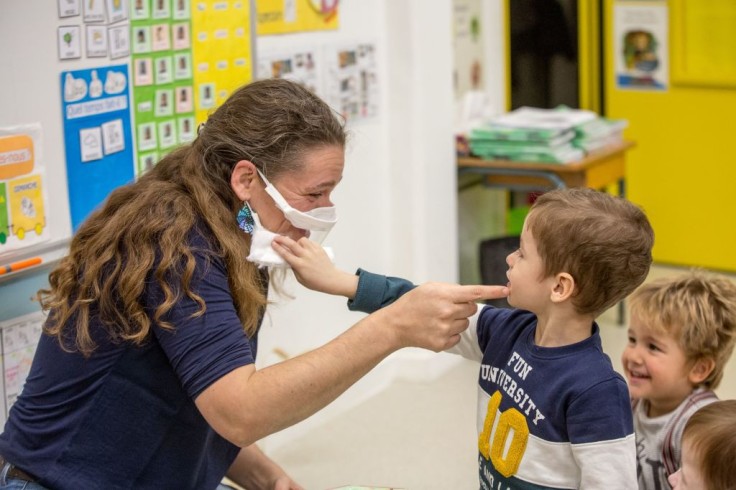
A trial of gene therapy restored hearing in deaf children. Children born with hereditary deafness due to genetic mutations called DFNB9 have restored their hearing.
This clinical trial, co-led by Mass Eye and Ear, a hospital in Boston, tested a type of gene therapy on six children who are completely deaf.
Children with hereditary deafness regained their hearing thanks to a type of gene therapy, a new study published on Wednesday found. The deafness caused by DFNB9 is caused by mutations in the otoferlin (OTOF) gene.
This means that these kids had a mutation that failed to produce a much-needed protein known as otoferlin, a necessary protein for the transmission of sound signals from the ear to the brain.
Gene Therapy: Transformative Impact on Hearing Loss Treatment
Children diagnosed with DFNB9, a genetic deafness variant caused by mutations in the OTOF gene, took center stage in this revolutionary clinical trial.
The OTOF gene mutations impede the production of otoferlin, a vital protein necessary for transmitting sound signals from the ear to the brain.
Initiated in December 2022 at the Eye & ENT Hospital of Fudan University in Shanghai, the trial employed an innovative gene therapy technique utilizing an inactive virus carrying a functional version of the OTOF gene.
This trailblazing clinical trial, a first in its category, enlisted six children with DFNB9, subjecting them to varying doses of the gene therapy over a meticulous 26-week observation period.
The findings, recently disclosed in The Lancet, underscore a remarkable success.
Hearing loss can be caused by a variety of factors, like injury, aging, illness, and malformation, but this could also be due to a variety of genetic mutations.
It is reported that about 1 in 500 newborns have genetic mutations that cause deafness. In the clinical trial done in these children, it was designed to restore hearing by delivering copies of normal OTOF genes into the inner ear.
This will allow sensory cells to function and respond to sound, activating the auditory nerve to send impulses to the brain.
Addressing Developmental Impacts and Future Steps
Five of the six children, previously classified as experiencing total deafness, exhibited complete recovery, regaining the ability to hear and participate in ordinary conversations.
The achievement unfolds new vistas in the realm of hearing loss treatment.
With no FDA-approved drug specifically earmarked for any form of hearing loss, including generic cases, this gene therapy breakthrough presents a beacon of hope for children previously categorized as completely deaf.
Dr. Zheng-Yi Chen, an associate scientist at Mass Eye and Ear, expressed profound enthusiasm, emphasizing the potential far-reaching impacts of this milestone on the trajectory of hearing restoration.
Undoubtedly, the developmental consequences of hearing loss in children are significant.
Dr. Chen underscored the pivotal role communication plays in a child's formative years and the detrimental effects untreated deafness can have on overall brain development.
Looking forward, the research team is poised to broaden the study, incorporating more participants for an expanded clinical trial.
The extended follow-up period aims to ascertain the sustainability and efficacy of gene therapy, with the ultimate ambition of extending its application to diverse forms of genetic deafness.
The comprehensive findings from this groundbreaking clinical trial are slated to be unveiled on Feb. 3 at the Association for Research in Otolaryngology Annual Meeting in Anaheim, California.
Related Article: Kyte Baby in Hot Water Over Refusing Maternity Leave to NICU Mom